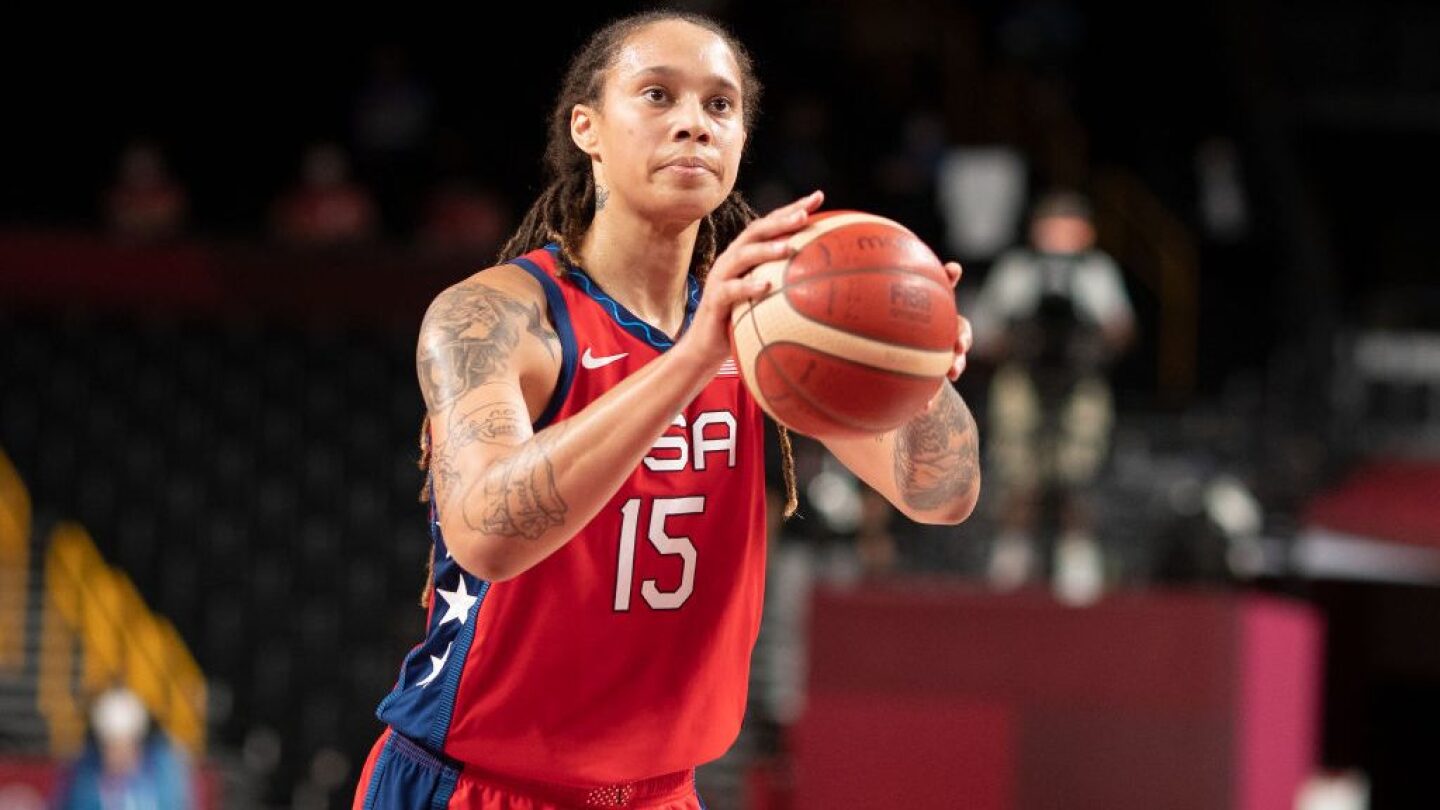
The expected snub of Caitlin Clark from the U.S. Olympic women’s basketball roster for the summer games is a “missed opportunity,” Dan Dakich, host of OutKick’s “Don’t @ Me,” said Sunday.
“They could have had more eyeballs on women’s basketball, which would have equated to going back to your season and finishing up even stronger, but now it’s just same old, same old. No one’s going to pay attention, and that’s a missed opportunity, and a really dumb missed opportunity,” he told co-host Will Cain on “Fox & Friends Weekend.”
His comments came on the heels of a report from The Athletic saying the Indiana Fever star would be left off the final roster for the 2024 Paris summer games.
After being named to the national team’s 14-person roster for training camp in Cleveland, Ohio, in early April, she was unable to attend USA Basketball’s training camp because she was focused on playing for the Iowa Hawkeyes in the NCAA tournament.
USA Basketball has yet to formally confirm the roster for this year’s Olympic team, however.
While some reports speculate the decision stems from Clark’s rookie status, others like Dakich struggle to make sense of the move to leave her off the roster.
“There’s no basketball player that’s a bigger draw right now in the world — in the world, I would argue — than Caitlin Clark,” he said.
“Let’s be honest, most people didn’t even know they had women’s basketball in the Summer Olympics. Now you have a chance to do this, and you don’t take it… “
Clark has been credited with bringing attention to the WNBA amid the league’s long-term struggle with viewership.
The Washington Mystics, for instance, played against Clark’s team before a crowd of 20,333 at Capital One Arena on Friday, the largest attendance for a WNBA game since 2007, according to AP, which cited data from Across the Timeline.
“All I’ve heard for years is, ‘We’ve got to grow the game, pay attention to us, love on us,’ and now you have a real opportunity… ” Dakich added.
The decision amassed criticism from others as well.
Former U.S. men’s soccer star Alexi Lalas, who recently spoke with Fox News Digital about Clark, weighed in, saying, “I don’t know enough about USA women’s Olympic basketball to know if Caitlin Clark’s omission is a snub. I do know that, right now, she would be the only reason I would remotely care about USA women’s Olympic basketball.”
Dave Portnoy, founder of Barstool Sports, sounded off in a post on X, formerly Twitter: “Leaving Caitlin Clark off the women’s Olympic team is the dumbest s— I’ve ever heard.”
OutKick contributor and “Gaines for Girls” host Riley Gaines, a former NCAA swimmer, wrote: “Caitlin Clark should be on the Women’s US Olympic Basketball team. That’s it. That’s the tweet.”
Fox News Digital’s Paulina Dedaj contributed to this report.
Breaking: Brittney Griner has announced her decision to leave the United States: ‘You Lose Your TALENT’
Brittney Griner, a prominent figure in women’s basketball, has announced her decision to leave the United States due to incessant criticism and verbal attacks. The WNBA star has been at the center of controversy for her actions during the national anthem, which include both singing and kneeling, a gesture that she describes as a way to honor the tradition while simultaneously drawing attention to social justice issues.

Griner’s decision has sparked a nationwide debate, highlighting the polarized views on patriotism, protest, and the role of athletes in political discourse. The criticism she faces primarily stems from her choice to kneel during the anthem, a form of protest popularized by NFL player Colin Kaepernick in 2016 to address police brutality and racial inequality. For many, Griner’s actions are seen as disrespectful to the flag and the country, while others view her protest as a courageous stand for justice and equality.

Griner has explained that her intention is not to disrespect the anthem or the country, but to use her platform to highlight ongoing issues of systemic racism and social injustice. She believes that kneeling is a powerful symbol that can provoke thought and inspire change. Despite her intentions, the backlash has been severe, with critics accusing her of being unpatriotic and disrespectful.
The verbal attacks have taken a toll on Griner’s mental and emotional well-being. In interviews, she has expressed feeling overwhelmed by the negativity directed at her. The constant scrutiny and personal attacks have made it increasingly difficult for her to focus on her career and personal life. Griner’s decision to leave the United States is a stark reminder of the intense pressure and scrutiny that public figures face, particularly those who choose to speak out on controversial issues.
The reactions to Griner’s departure have been mixed. Supporters commend her for standing by her principles and raising awareness about important social issues. They argue that her actions highlight the need for continued dialogue and reform in the United States. Critics, on the other hand, view her departure as a concession to the pressure and argue that she should have stayed to continue her fight on home soil.
Griner’s decision to leave the United States also raises broader questions about the freedom of expression and the role of athletes in social and political activism. Athletes have long been influential figures in society, and their actions and statements often carry significant weight. Griner’s case illustrates the fine line that public figures must navigate between using their platform for advocacy and managing the personal repercussions of their activism.
In conclusion, Brittney Griner’s departure from the United States underscores the challenges faced by athletes who choose to engage in political and social activism. Her decision reflects the profound impact that public criticism and verbal attacks can have on an individual’s life. As the debate continues, it serves as a poignant reminder of the ongoing struggle for justice and equality, and the complex dynamics of patriotism and protest in modern America. Griner’s story will likely continue to inspire discussions on the role of athletes in advocating for social change and the importance of supporting those who use their platforms for the greater good.
Whoopi Goldberg ‘MAD’ as Simone Biles turns down appearance on The View: ‘This is the WORST offer of my career’
In a recent episode of “The View,” a notable incident occurred when Simone Biles, the celebrated gymnast, declined an invitation to appear on the show. Whoopi Goldberg, a long-time host, expressed her frustration, labeling the situation as “the worst offer” of her career. The tension arose after Biles made a candid statement, dismissing the invitation as lacking appeal or relevance to her current endeavors.

Biles’ refusal highlights a broader issue regarding celebrity appearances on talk shows like “The View.” The gymnast, who has been open about her mental health struggles and is a prominent advocate for self-care, likely felt that the platform did not align with her message or brand. Her decision sparked a discussion among the hosts, with Goldberg taking it personally, possibly feeling that the rejection reflected poorly on the show’s reputation.
Goldberg’s reaction can be seen in the context of her own career and recent controversies surrounding “The View.” The show has faced criticism and fluctuating viewership, with rumors about its potential cancellation and Goldberg’s possible departure. These factors may have contributed to her heightened sensitivity to perceived slights from high-profile figures like Biles.
Moreover, Goldberg is currently engaged in several other projects, including the release of her new memoir “Bits and Pieces: My Mother, My Brother, and Me,” which explores personal stories and family memories. This project, alongside her work on “The View,” suggests a busy schedule that might also affect her emotional investment in the show’s success and its interactions with guests.
The incident reflects a broader trend of celebrities exercising greater control over their public appearances, choosing platforms that align with their personal and professional goals. For Biles, known for her principled stance on mental health and advocacy, appearing on “The View” may not have offered the substantive dialogue she seeks. Her decision to decline, therefore, can be seen as an assertion of her values and priorities.
This situation also raises questions about the role of talk shows in modern media. “The View,” known for its mix of political and cultural commentary, has sometimes struggled to balance serious discussions with entertainment. The reaction to Biles’ decline underscores the pressure these shows face to maintain relevance and appeal in a rapidly changing media landscape.
As for Goldberg, her reaction may reflect the challenges faced by long-standing media personalities in adapting to these changes. Her frustration suggests a personal stake in the show’s success and perhaps an anxiety about its future. With rumors of possible changes to the show’s lineup and format, the incident with Biles could be a reflection of broader uncertainties within the “The View” team.
In conclusion, the refusal of Simone Biles to appear on “The View” and the subsequent reaction from Whoopi Goldberg highlight the evolving dynamics of celebrity media engagements. It underscores the need for shows like “The View” to adapt to the changing priorities of guests and audiences. As both Biles and Goldberg navigate their respective careers, this incident serves as a reminder of the complexities involved in media appearances and the importance of alignment between personal values and public platforms.




